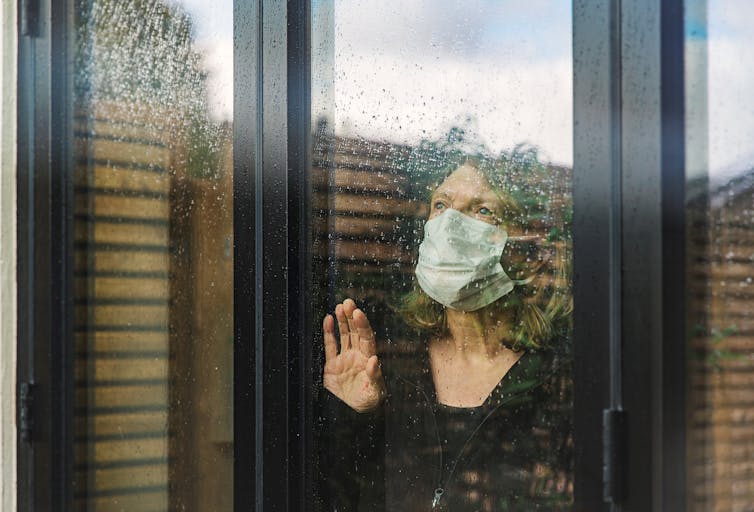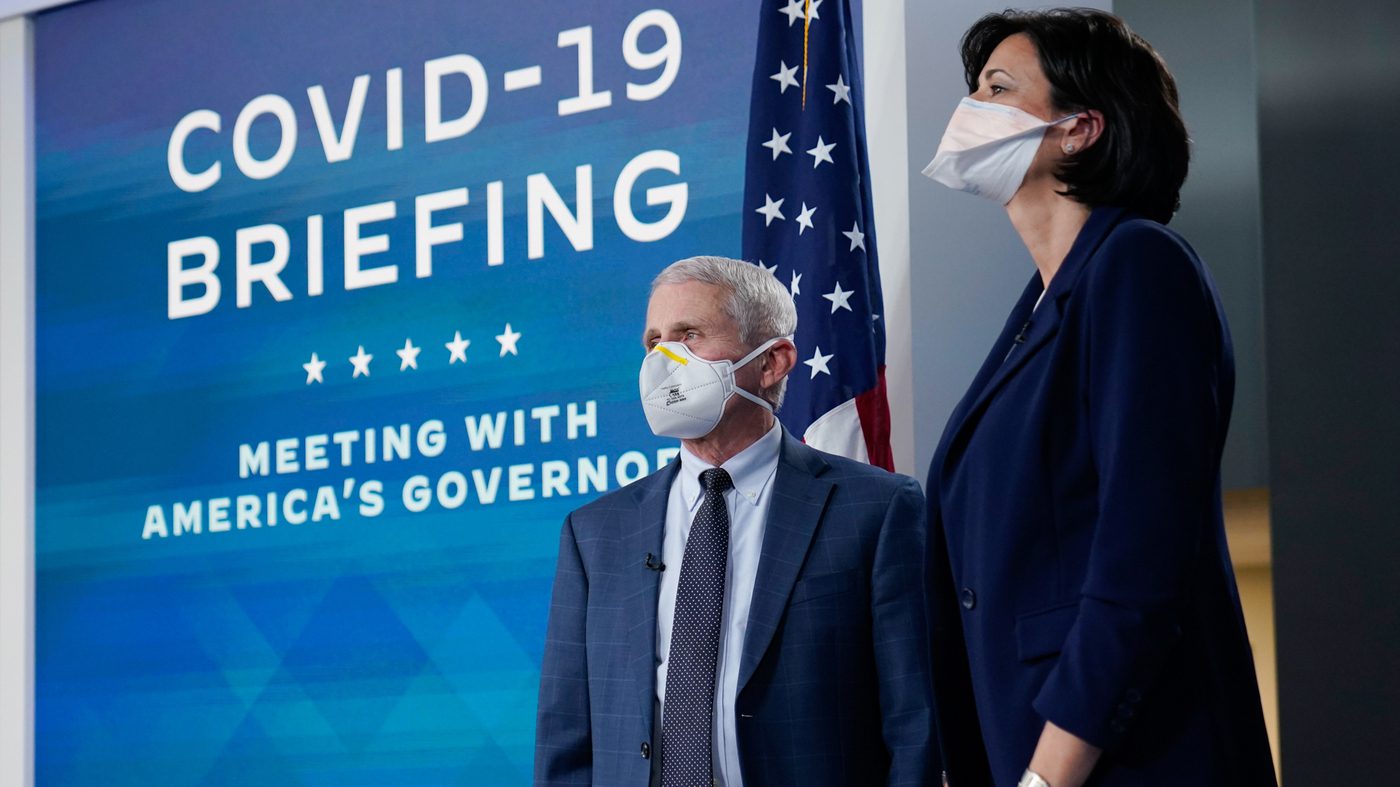An infectious disease doc looks at the latest research

Justin Paget/DigitalVision via Getty Images
William Petri, University of Virginia
In December 2021, the U.S. Centers for Disease Control and Prevention updated its guidelines for how long people should isolate following a COVID-19 infection. The agency shortened the isolation from 10 days to five, followed by five days of wearing a mask for those no longer symptomatic.
The change came during the height of the omicron variant’s surge and related staffing shortages at hospitals, schools and businesses. Some critics suspected that the move was more practically motivated than science-based to allow workers, especially health care and other essential personnel, to return to their jobs quicker.
As a result, I thought it useful to review the data behind the latest recommendations to help people think through best practices.
I’m an infectious diseases specialist at the University of Virginia. I take care of patients hospitalized with COVID-19 and conduct research on how the immune system responds to infection.
The CDC’s current strategy
First, let’s make a distinction between the terms “isolation” and “quarantine.” During the pandemic, people have often used them interchangeably. But isolation is meant to separate infected people from those who aren’t, whereas quarantine separates those who were exposed to COVID-19 but have not yet tested positive or are not symptomatic.
That said: If you are infected with COVID-19, the CDC’s latest guidelines have cut your isolation period by half, to five days from the onset of symptoms, or the first positive test if you do not have symptoms. After five days, as long as you are getting better, the CDC says you no longer need to isolate but should mask around others for five more days.
If you are exposed to COVID-19 and have not had your booster shot, the CDC recommends that you quarantine for five days following exposure. Between days five to seven, you should be tested, and if the test is negative, you can end the quarantine. Consider yourself exposed if you are within 6 feet of an infected person for 15 minutes or more over a 24-hour period. And the CDC says if you are vaccinated and boosted, you don’t need to quarantine at all after an exposure to COVID-19 – though you should get tested five days later and mask for at least 10 days after exposure.
Regardless of vaccination status, the CDC recommends that you take a rapid antigen test or a PCR test five to seven days after exposure to confirm that you did not acquire COVID-19 prior to leaving quarantine.
New studies support these CDC recommendations
What is the evidence behind these recommendations? Although researchers are still learning about omicron – as the CDC says, “the science is evolving” – some reports suggest its symptoms appear more rapidly after exposure when compared with the delta variant. That includes the results of four small studies from Nebraska, Norway, Japan and the National Basketball Association in the U.S.
In Nebraska, a family of six was exposed at the same time to the omicron variant of SARS-CoV-2, the virus that causes COVID-19. Symptoms of infection appeared within one to three days of exposure, which is one to two days faster than the delta variant. This finding supports the CDC recommendations. In Norway, approximately 100 guests were exposed to omicron at a Christmas party; most got COVID-19, with symptoms appearing and infections detected within two to five days after exposure, again earlier than would have been expected for delta.
In Japan, a study of 21 people infected with omicron found that the amount of virus was highest three to six days after diagnosis or symptom onset. And a study from the NBA COVID-19 surveillance system discovered that a person with omicron was typically no longer infectious by day five.
[You’re smart and curious about the world. So are The Conversation’s authors and editors. You can read us daily by subscribing to our newsletter.]
Taken together, these studies suggest that most people who were infected with the omicron variant or who had an exposure no longer transmitted the virus by day five.
These four studies illustrate the reasoning behind the CDC’s shortening of its isolation and quarantine recommendations to five days. By that point post-infection, the vast majority of people aren’t going to spread the virus to others, so it makes sense that they can get back to their normal routines.
The follow-up test is critical if you were exposed and in quarantine
But remember the caveat: Without a rapid antigen or PCR test five to seven days after the beginning of quarantine, transmission rates of COVID-19 might only be reduced by half.
That’s why both the CDC and the World Health Organization are recommending the follow-up tests within five to seven days of the start of quarantine.
Mathematical models demonstrate that either rapid antigen or PCR testing allows for shortening of quarantine time without compromising public safety.
And one footnote: As of early March 2022, nearly 57% of Americans who are fully vaccinated have not received the booster. That means tens of millions of Americans have yet to take this extra step to more fully protect themselves from this virus.
William Petri, Professor of Medicine, University of Virginia
This article is republished from The Conversation under a Creative Commons license. Read the original article.
















